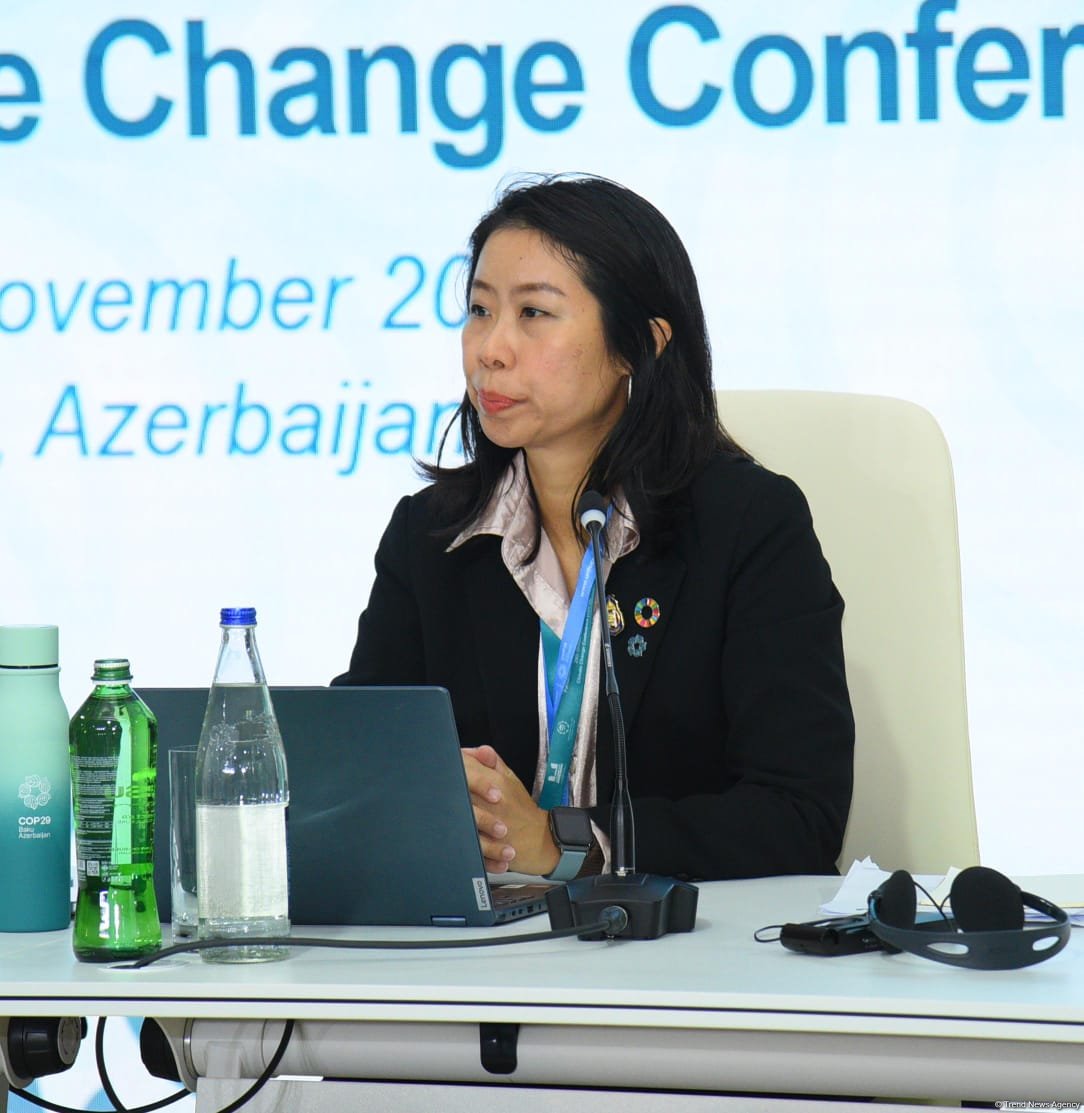BAKU, Azerbaijan, November 18. Thailand's most vulnerable social group remains farmers, Member of the House of Representatives of Thailand Saniwan Buaban said speaking at a panel session on "Navigating human mobility and climate change: addressing climate-induced migration and displacement" on the sidelines of the COP29 Parliamentary Meeting, jointly organized by the Inter-Parliamentary Union (IPU) and the Parliament of the Republic of Azerbaijan, Trend reports.
"Thailand's economy relies heavily on the agricultural sector, with farmers representing one of the most vulnerable groups. When planning their sowing calendar, they are forced to rely on weather conditions that are becoming increasingly less predictable. Frequent extreme events, such as floods in some regions and prolonged droughts in others, have a serious impact on their lives.
Farmers in poor rural provinces, particularly northeastern Thailand, are particularly hard hit. Repeated droughts are reducing crop yields, forcing many to temporarily migrate to urban areas in search of work to support their families," she said.
Saniwan Buaban noted that currently more than 20% of the country's population lives in flood-prone areas and has already been forced to move. According to forecasts from the World Bank and the Asian Development Bank, coastal flooding could affect an additional 2.4 million people by 2070.
"Northern Thailand has recently been hit by floods and landslides that have affected more than 10,000 households, with heavy rainfall expected in the south later this year, raising further concerns.
Samut Saihon Province, located along the coast, is experiencing severe coastal erosion caused by rising sea levels. According to data, the coastline has retreated more than 30 meters in some places over the past five years. This has resulted in the destruction of critical infrastructure and forced families to move further inland," a member of the House of Representatives added.







